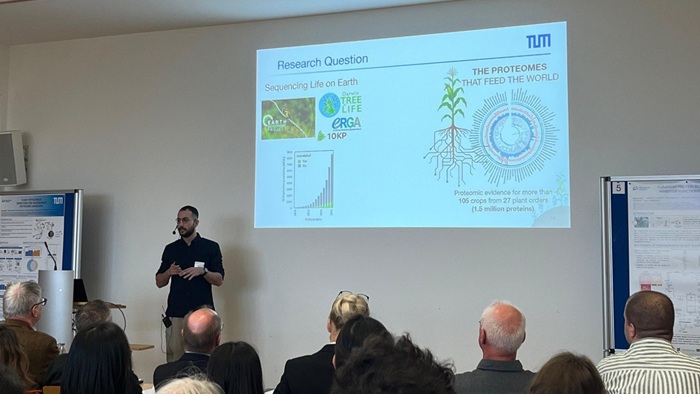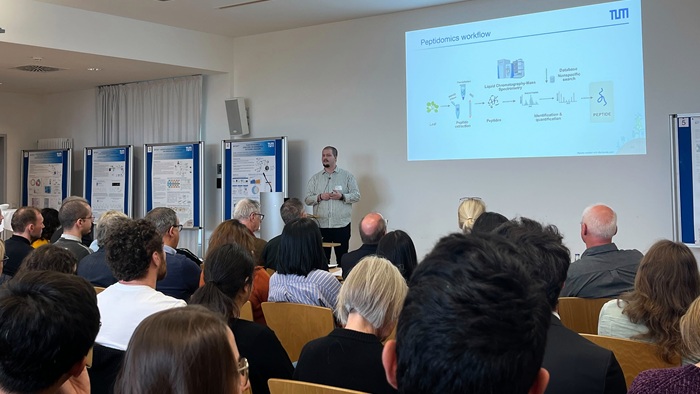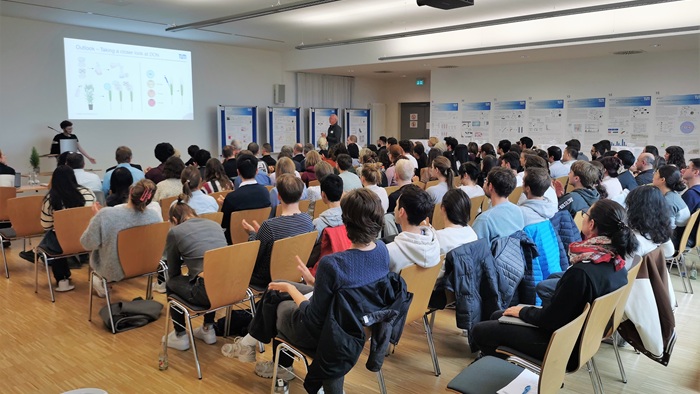PhD students present their projects at the International Doctorate Program “The Proteomes that Feed the World”
Since 2022, the International Doctorate Program “The Proteomes That Feed the World” has been training PhD-students at TUM. As part of the application for a further four-year funding period in the Elite Network of Bavaria, three doctoral students presented their individual research projects in the fields of bioinformatics, proteomics, and plant biology on 13 October 2025.




